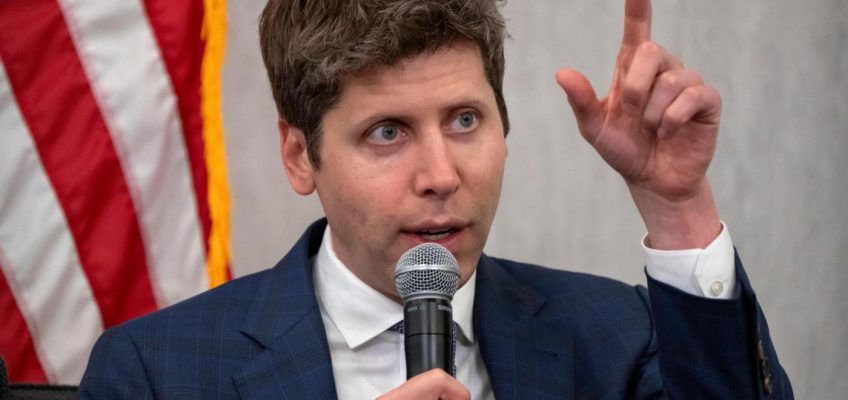By ERIC TUCKER and CHRIS MEGERIAN
WASHINGTON (AP) — President Donald Trump rehashed longstanding grievances over the Russia investigation that shadowed much of his first term, lashing out Tuesday following a new report from his intelligence director aimed at casting doubt on long-established findings about Moscow’s interference in the 2016 election.
Related Articles
Volunteers flock to immigration courts to support migrants arrested in the hallways
Thousands of Afghans face possible deportation after court refuses to extend their legal protection
Lawyers say Venezuelan migrant ordered returned to US sent to home country under prisoner exchange
House ending session early as Republicans clash over Epstein vote
Pentagon tightens rules on getting medical waivers to join the military
“It’s time to go after people,” Trump said from the Oval Office as he repeated a baseless claim that former President Barack Obama and other officials had engaged in treason.
Trump was not making his claims for the first time, but he delivered them when administration officials are harnessing the machinery of the federal government to investigate the targets of Trump’s derision, including key officials responsible for scrutinizing Russia’s attempts to intervene on Trump’s behalf in 2016.
The backward-looking inquiries are taking place even as the Republican administration’s national security agencies are confronting global threats. But they have served as a rallying cry for Trump, who is trying to unify a political base at odds over the Jeffrey Epstein case, with some allies pushing to disclose more information despite the president’s push to turn the page.
Trump’s attack prompted a rare response from Obama’s post-presidential office.
“Our office does not normally dignify the constant nonsense and misinformation flowing out of this White House with a response,” said Patrick Rodenbush, an Obama spokesman. “But these claims are outrageous enough to merit one. These bizarre allegations are ridiculous and a weak attempt at distraction.”
Gabbard’s new report on the Russia investigation
Trump’s tirade, a detour from his official business as he hosted the leader of the Philippines, unfolded against the backdrop of a new report from Director of National Intelligence Tulsi Gabbard that represented his administration’s latest attempt to rewrite the history of the Russia investigation, which has infuriated him for years.
The report, released Friday, downplayed the extent of Russian interference in the 2016 election by highlighting Obama administration emails showing officials had concluded before and after the presidential race that Moscow had not hacked state election systems to manipulate votes in Trump’s favor.
But Obama’s Democratic administration never suggested otherwise, even as it exposed other means by which Russia interfered in the election, including through a massive hack-and-leak operation of Democratic emails by intelligence operatives working with WikiLeaks. Also, a covert foreign influence campaign aimed at swaying public opinion and sowing discord through fake social media posts.
Gabbard’s report appears to suggest the absence of manipulation of state election systems is a basis to call into question more general Russian interference.
Democrats swiftly decried the report as factually flawed and politically motivated.
“It is sadly not surprising that DNI Gabbard, who promised to depoliticize the intelligence community, is once again weaponizing her position to amplify the president’s election conspiracy theories,” wrote Sen. Mark Warner, the top Democrat on the Senate Intelligence Committee.
Several investigations found Russian interference in 2016
Russia’s broad interference in 2016 has been established through a series of investigations, including special counsel Robert Mueller’s report, which concluded that the Trump campaign welcomed the Kremlin’s help but also found insufficient evidence to establish a criminal conspiracy. A House Intelligence Committee report also documented Russia’s meddling, as did the Senate Intelligence Committee, which concluded its work at a time when the panel was led by Republican Sen. Marco Rubio, who’s now Trump’s secretary of state.
A different special counsel appointed by the Trump Justice Department to hunt for problems in the origins of the Russia investigation, John Durham, did find flaws, but not related to what Gabbard sought to highlight in her report.
“Few episodes in our nation’s history have been investigated as thoroughly as the Intelligence Community’s warning in 2016 that Russia was interfering in the election,” said Rep. Jim Himes, the top Democrat on the House Intelligence Committee.
He added that every legitimate investigation, including the bipartisan Senate Intelligence Committee probe, “found no evidence of politicization and endorsed the findings of the 2016 Intelligence Community Assessment.”
Gabbard’s document was released weeks after a CIA report that reexamined a 2017 intelligence community assessment on Russian interference. That new review, ordered by CIA Director John Ratcliffe, did not dispute Russia had interfered but suggested officials were rushed in the intelligence assessment they produced.
Seeking investigations of former officials
Ratcliffe has since referred former CIA Director John Brennan and former FBI Director James Comey to the Justice Department for investigation. The department appeared to acknowledge an open investigation into both former officials in an unusual statement earlier this month, but the status or contours of such inquiries are unclear.
Besides Obama, Trump on Tuesday rattled off a list of people he accused of acting criminally “at the highest level,” including Comey, his 2016 Democratic opponent Hillary Clinton and former national intelligence director James Clapper.
He accused Obama, without evidence, of being the “ringleader” of a conspiracy to get him. Obama has never been accused of any wrongdoing as part of the Russia investigation, and, in any event, a landmark Supreme Court opinion from last year shields former presidents from prosecution for official acts conducted in office.
Trump launched his tirade when asked about the Justice Department’s effort to speak with Ghislaine Maxwell, the former girlfriend of Epstein, who was convicted of helping the financier sexually abuse underage girls.
“I don’t really follow that too much,” he said. “It’s sort of a witch hunt, a continuation of the witch hunt.”
Trump is under pressure from conspiracy-minded segments of his political base to release more about the Epstein case. Democrats say Trump is resisting because of his past association with Epstein. Trump has denied knowledge of or involvement with Epstein’s crimes and said he ended their friendship years ago.




